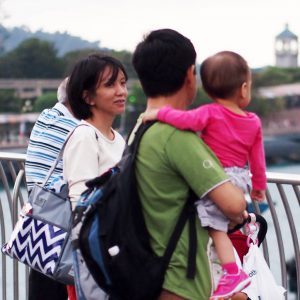Social Capital and Integration of Low-Income Binational Families in Singapore
March 22, 2021

As of 21 March 2020, Singapore had recorded under 400 COVID-19 infections and zero deaths and was widely praised by the international community for its efforts in keeping transmission rates under control. Around a week later, however, the first few COVID-19 cases started to emerge in the dormitories where thousands of foreign migrant workers reside. The substandard living conditions that housed these migrant workers widely exposed how they and other low-income foreigners in Singapore are generally neglected by the state.
In ‘Social Capital and Integration of Low-Income Binational Families in Singapore’, Associate Professor Choo Hyekyung (NUS Department of Social Work), Associate Professor Esther Goh (NUS Department of Social Work), Professor Brenda Yeoh (NUS Geography), and Associate Professor Shirlena Huang (NUS Geography) investigate the additional challenges faced by low-income binational families in Singapore. Foreigners typically experience social issues when trying to settle down in a different country. Binational families, also known as transnational families, formed by international marriage between a Singaporean and a foreign spouse, may encounter difficulties which require specific forms of social assistance. Their vulnerability is exacerbated if they are a family of a low socio-economic status.
The researchers aim to understand how three broad conditions affect the social integration of these families at an individual and familial level. The first consists of demographic conditions, such as nationality, immigration, and employment status. For example, the successful application for a Permanent Residency (PR) status may facilitate the social integration of the foreign spouse across different domains in his/her life. The second condition is the psycho-socio-economic challenges, including marital conflict, parenting difficulties, and child adjustment issues, encountered by the binational family. Differences in the couple’s nationalities, cultural backgrounds and language often elevate the risk of marital conflict for them. The third and last condition is the availability and utilisation of social capital, particularly social support systems and social services.
Findings from the study will help to understand how to reduce the socio-economic vulnerability of binational families and facilitate their integration into Singapore.
